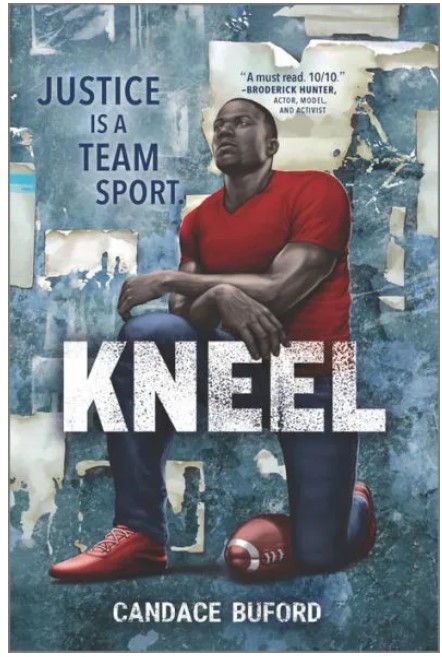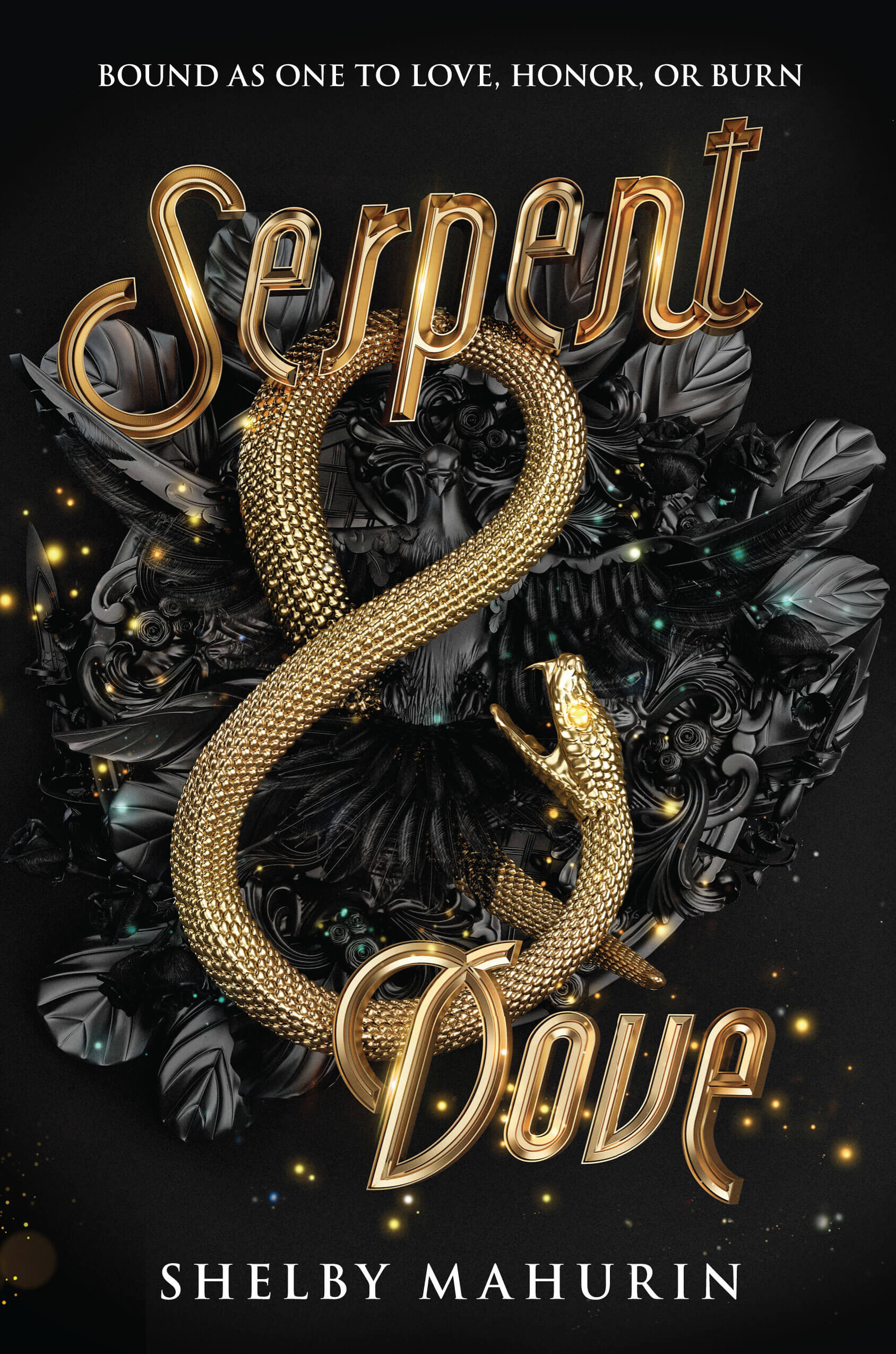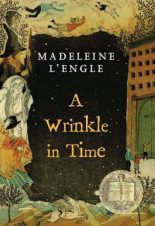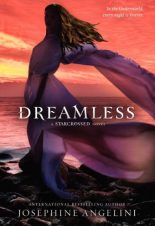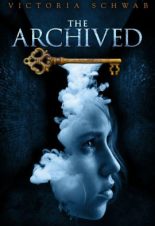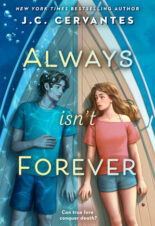Serpent & Dove #1
by Shelby Mahurin
AR Test, Strong Female, Teaches About Culture
14+
Score
4.9
528
In the city of Cessarine, the war between magic-wielding witches and holy men of the Church known as Chasseurs has raged for centuries. At the very heart of this war lays Louise, a Dame Blanche witch who has decided to hide in Cessarine to keep her estranged mother from finding her.
But her days skulking around dressed as a man, secretly squatting above a theater and stealing to survive come to an abrupt end when Reid, a Chasseur captain, discovers her thieving ways. After an embarrassing encounter in which Louise frames Reid as a sexual predator in front of a theater audience, the two must quickly keep themselves both from being reprimanded in the only way they can: by marrying each other.
Marriage changes both Louise’s and Reid’s lives forever. For Louise, she never meant to get this close to her Chasseur enemies, and she plays a dangerous game by keeping her true witch nature hidden while developing her relationship with Reid. For Reid, not only did he love another noble girl, but Louise is wild, untamed, and a heathen: she goes against every aspect of society’s proper female image. Yet, the longer the two are around each other, the more they fall in love. And the more dangerous their relationship becomes, the closer Louise’s mother gets to finding her. Yet, their love will overcome any obstacles that stand in their way.
Mahurin’s Serpent & Dove is a fun, exciting story from beginning until the end. Focusing on characters in a similar Romeo & Juliet styled story, Mahurin skillfully develops a story about old grudges, fanatical warriors, and love that overcomes even death. The main characters are very believable and are relatable because of how they can’t control their emotions despite realizing how complicated those emotions might make their lives. The story is fast-paced and full of surprises, twists, and heart-pounding scenes that will keep readers wanting to know what happens next. And even though many of those twists may be somewhat predictable, those secrets are revealed in very satisfying ways.
Serpent & Dove themes also come through naturally, and are built into the story’s backdrop. Louise and Reid learn that centuries-old grudges need to be overcome in order to find love and happiness. In the beginning, both Louise and Reid believe the other is one-dimensional and evil. By the end of the story, both Louise and Reid are willing to sacrifice everything for one another. The story also highlights the dangers of recognizing one’s faults, as seen in the Dames Blanches and the Chasseurs.
Overcoming prejudice is the novel’s main crux and it’s incorporated into the story quite charmingly. Watching Louise and Reid follow their hearts and find lives worth living is heartwarming. Serpent & Dove is a great story because of how well this point is executed, and because it truly does feel like at any moment their love could be torn apart by every other character. The story is thrilling from the moment Louise and Reid meet until the very end of the novel. Mature readers who enjoy a good mix of action and romance will want to add this book to the top of their reading list.
Sexual Content
- Near the beginning of the novel, Louise and her friend visit a brothel in order to learn the whereabouts of a magical object. Louise comments on the working ladies at the brothel, “To be fair, however, many of them weren’t wearing corsets. Or anything at all.”
- Many characters often give each other compliments on their looks. Babette, a courtesan working at the brothel, gives Coco a compliment, “Cosette, you look ravishing, as usual.”
- Louise and Reid constantly think about the other’s sex appeal. Louise thinks Reid is, “Irritatingly I couldn’t help but stare. Thick lashes framed eyes the precise color of the sea.”
- Bas, a thief friend of Louise, notices Louise’s sex appeal often. “He leaned forward, dark eyes setting on my lips.” Louise thinks Bas is “handsome enough to court. Certainly handsome enough to kiss. From across the cramped table, I eyed the dark line of his jaw.” She also thinks he has “such a tight little ass.” Yet since Bas only saw her as a friend-with-benefits, Louise thinks, “Perhaps that was why I’d stopped loving him.”
- Madame Labelle, the owner of the brothel, kisses a man. “Grasping Tremblay’s arms with a wide smile, Madame Labelle kissed both his cheeks . . .”
- When Louise and Coco are confronted by two men, Andre and Grue, at the brothel, Louise thinks, “I dreaded to think what they would do with immediate access to anything. Especially sex and violence.”
- After Coco gives Louise her favorite food, Louise thinks, “I could’ve kissed her.”
- When Louise wants free food from a pastry chef, she flirts with the chef, Johannes Pan. “Most days I only had to bat my lashes. Others I had to get slightly more. . . creative.”
- One of the witches’ Goddesses “represents fertility, fulfillment and sexuality.” Similarly, Adam and Eve are mentioned. “Eve seduced Adam into sin.”
- Reid’s fellow Chasseurs gossip about Louise, “I heard she’s a whore.”
- When Louise and Reid finally make love to each other, Louise thinks, “The time for games was done.” And then she says, “I wanted him to touch me. I wanted him to become my husband in every sense of the word.” And, later in the same scene, it’s revealed that “Reid had never had sex. He was a virgin.” And, once again, later in the same scene, “I watched his throat bob, heard his breath hitch.”
Violence
- There’s frequent violence throughout the novel, including the sight or mention of corpses. For instance, Reid says, “Thirteen bodies had been found throughout Belterra over the past year.”
- Witches are commonly burned on pyres, as well as anyone who might conspire with witches. “But the flames come first with the Church. Questions second.” Estelle, a witch after Louise, is caught by Reid and burned alive. Louise thinks, “Though tears clouded my vision, I forced myself to watch the flames lick up Estelle’s dress. I forced myself to hear her screams.”
- A young noblewoman was found with her throat slashed.
- Louise is willing to get her hands dirty when her life is threatened. Babette, a courtesan, threatens Louise with blackmail if she doesn’t become a courtesan, “If Babette wasn’t careful, she’d soon learn just how wretched and violent we could be.” Louise kills two thugs after her life. “Gritting my teeth, I seized Andre’s knife and plunged it into his throat, slashing through skin and tendon and bone.” After that fight, Louise tries to clean herself up: “Deep purple bruises had seeped beneath my eyes, and dried blood spattered my cheeks. I scrubbed at it with the cold water from the tap, rubbing my skin until it was pink and raw.”
- Witches use their magic to create havoc and bloodshed. While attacking the royal family during a parade, the witches were“Laughing as bodies fell around them with the simplest flicks of their fingers.”
- Children are also harmed by witches. Reid says, “Last month, a child had been found without its eyes. . . More than twenty bodies circled the air around the witches now—some unconscious, heads lolling, and others painfully awake.”
- When Louise uses magic, she has to give something in return, typically meaning she has to harm herself. “Though I bit my lip hard enough to draw blood, a small groan still escaped as I snapped a second finger.”
- Several times, Louise is threatened by two guys that hold a grudge against her. A man, Grue, “smash[ed] my face into the ground. My nose cracked, and blood spurted sickeningly into my mouth.” When defending herself, Louise “exploded beneath him in a blur of limbs and nails and teeth, clawing and biting and kicking every bit of him I could reach.”
- Reid displays a desire to attack and kill witches quite frequently, especially towards Morgane, Louise’s mother: “And Morgane—never before had I longed to kill a witch as I did now, to plunge a knife into her throat and sever her pale head from her body.”
- Later, Reid also kills his foster father. “A small, pleading noise escaped him, but he could do little else before I fell upon him. Before I drove my knife home in his heart.”
- The Chasseurs will kill any witch, even children and babies. “They showed no mercy, cutting through woman and child alike without hesitation.”
Drugs and Alcohol
- Aristocrats in Cessarine drink alcohol at social parties. Louise notes, “Judging from the loud, slurred voices of the aristocrats nearest me, they’d been hitting the bubbly for hours.” While at the King’s social party celebrating Reid’s heroics, Louise “grabbed a flute of champagne from a passing servant and down[ed] it in one swallow.” Louise thinks, “After a few moments, delicious warmth spread through my body.”
- When Morgane, Louise’s mother, sends witches after Louise, the witches inject her with drugs in order to capture her. When a needle is stabbed into Louise’s neck, she“had no physical strength left to give, and my mind was too drug-saturated to distinguish patterns.”
- After Louise runs from Reid, Louise’s friend defends her, “She was drugged and obviously injured.”
- When Morgane has finally captured Louise, Morgane says, “Extraordinary, those little injections. When Monsieur Bernard brought one to me, I perfected the medicine.” Morgane’s injections mess with Louise’s ability to use her magic, “Panicked, I focused on bringing a pattern forth—any pattern—but the gold winked in and out of focus, blurred and disjointed from the drug.”
- After days of being injected with her mother’s drug, Louise thinks, “Though the drug paralyzed my body, it did nothing to dull the ache in my bones.” Later on, Louise “scowled and focused on the burning sensation in [her] hands and feet—the first indicator of the drug waning.”
- When speaking with one of her fellow witches, Louise tells the witch about how she feels being under the drug. “If I could move, I’d puke all over your lap.” The witch calls the drug a medicine, and Louise responds, “Is that what you call it? Medicine? That’s an interesting word for poison.”
- At the end of the novel, Louise discovers that she shares a connection with Prince Beau of Cessarine. Louise comments, “It would seem we frequent the same pubs.”
Language
- Ass and shit are used frequently. For example, aristocrats and other haughty characters are often referred to as “pompous ass.”
- Fucking appears a few times in the novel. A thug, Andre, verbally abuses Louise, saying “I’m going to cut you into fucking pieces.”
- Damn, hell, and whore are each used a few times. For example, Louise tells Babette, “You are a goddamned hound.”
- A noble insults a courtesan. The noble says, “it’s locked away in my townhouse, you salope ignorante—”
- Louise calls someone a “twit.”
- A pastry chef is called a “halfwit.”
- When talking about someone possibly betraying Louise and Coco, Coco says, “That bastard will renege as soon as he’s out of sight.” Bastard is used frequently.
- Similarly, Louise calls someone a “worthless coward.”
- Louise says, “Nature could piss off.”
Supernatural
- Magic is a common theme and backdrop for this novel. The main conflict stems from a fanatical group of witches, the Dame Blanches, attempting to overthrow the royal family of Cessarine to win back their land and free themselves from persecution. Witches within Cessarine hide in plain sight, “Any one of us could be a witch.” Many believe, “The witches are vicious.”
- When Louise witnesses the parade of the Royal family, she feels magic in the air. Louise “recognized the faint brush of energy against my skin, the familiar thrumming in my ears. Magic.”
- Magic typically has a smell that “always followed the witches. Sweet and herbal, yet sharp—too sharp. Like the incense the Archbishop burned during Mass, but more acrid.”
- There are magical objects as well. Some are even trafficked in the black market, “But while Filippa might’ve had no enemies, her pompous ass of a father had accumulated plenty while trafficking magical objects.”
- Angelica’s Ring, a magical object, is sought after by Louise because “it renders the user immune to enchantment. Sort of like the Chasseur’s Balisardas.”
- Louise is a witch herself, the daughter of Morgane, the leader of the Dames Blanche witches. When Louise has a conversation with a thief, she thinks, “The ancient feud between the Church and witches didn’t affect me anymore—not since I’d left the world of witchcraft behind.”
- Dame Blanches use magic by seeing golden patterns in the air.
- Dame Rouges, another coven of witches, use blood magic instead of seeing golden patterns in the air.
- Some believe that basic remedies will keep witches away. “Please, monsieur, return home. Salt your doors and windows.”
- Witches can use their magic to control others, even controlling corpses. When attacking the royal family during a parade, “The witches cackled and continued contorting their fingers in unnatural ways. With each twitch, a helpless body rose. Puppeteers.”
- Most witches are viewed as demons, as Reid says, “But witches weren’t human. They were vipers. Demons incarnate.” Witches are also commonly referred to as “it.”
Spiritual Content
- The Christian Church and its teachings are a main backdrop of this novel. Mass is mentioned, but never directly put in any scene.
- The Archbishop makes several appearances.
- The Chasseurs are the holy warriors of the church. Only men can be Chasseurs. “Sworn to the Church as huntsmen, Chasseurs protected the kingdom of Belterra from the occult—namely, the Dames Blanches, or the deadly witches who haunted Belterra’s small-minded prejudices.”
- Chasseurs wield Balisardas, weapons that negate magic. For Balisardas, “Each had been forged with a molten drop of Saint Constantin’s original holy relic, rendering us immune to the witches’ magic.”
- Biblical references are common. When Reid watches his best friend and fellow Chasseur, Reid notices, “Though he also wore no uniform, the crowd still parted for him like the Red Seas for Moses.”
- God is mentioned frequently throughout the story. For example, the Archbishop said, “May God have mercy on your soul.” The Archbishop says, when talking about the Triple Goddess, “As if God could be a woman.”
- Hell is mentioned several times. Just before a witch escapes from Reid’s grasp, he laments, “before I could unsheathe my blade and send her back to Hell where she belonged.”
- The Bible, scripture, and other religious sayings are quoted frequently throughout the book. “Thou shalt not suffer a witch to live.” Another is, “Witches do not worship our Lord and Savior, nor do they acknowledge the holy trinity of Father, Son, and Holy Spirit. They glorify another trinity—an idolatrous trinity. The Triple Goddess.”
- The Triple Goddess is also mentioned several times, either in the form of the Maiden, the Mother, or the Crone. The Triple Goddess is worshipped by the witches; it’s considered “Triple” because the witches use it to mock the Trinity.
- The Garden of Eden is mentioned.
- Many of the characters, especially the Chasseurs, often pray. Others, like Louise or witches, use prayers to mock holy men and women. Witches generally mock every part of Christianity.
by Jonathan Planman
“There’s something haunting about a body touched by magic,” Louise. –Serpent & Dove
Latest Reviews
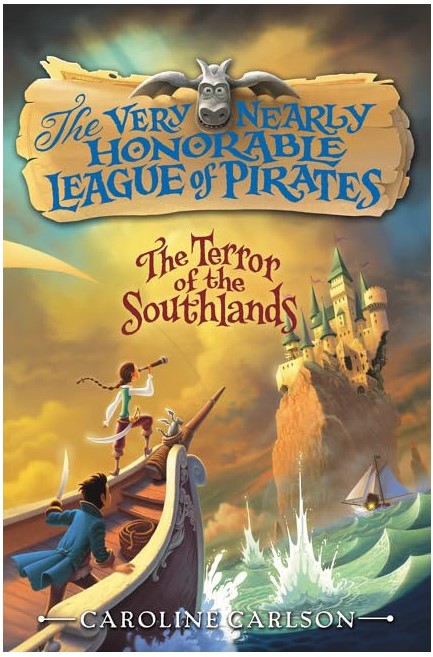
The Terror of the Southlands
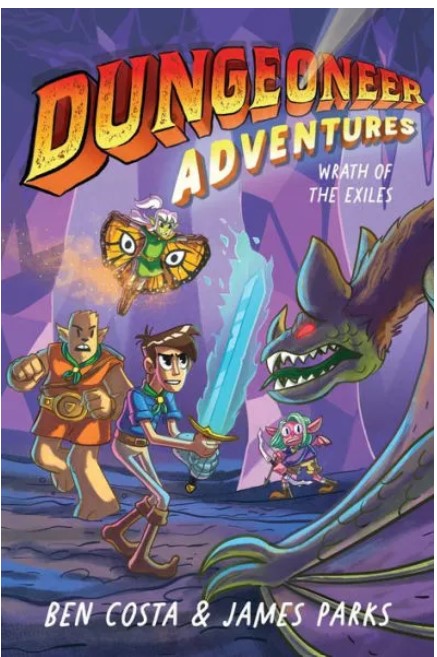
Wrath of the Exiles

Jasmine Toguchi, Drummer Girl
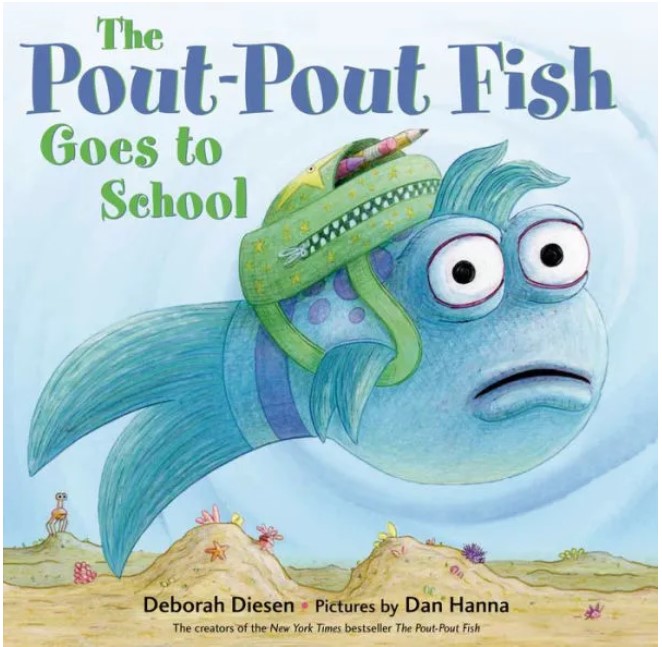
The Pout-Pout Fish Goes to School
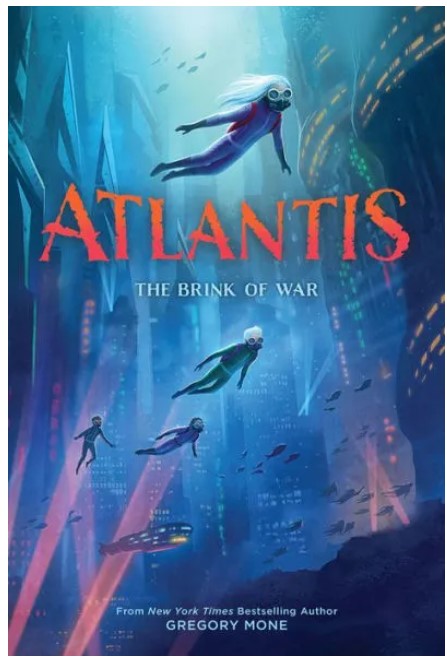
The Brink of War

Get Well, Crabby
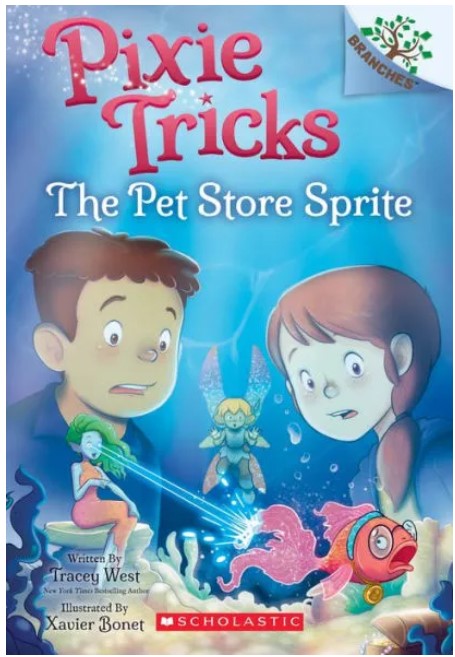
The Pet Store Sprite

Stacey’s Remarkable Books
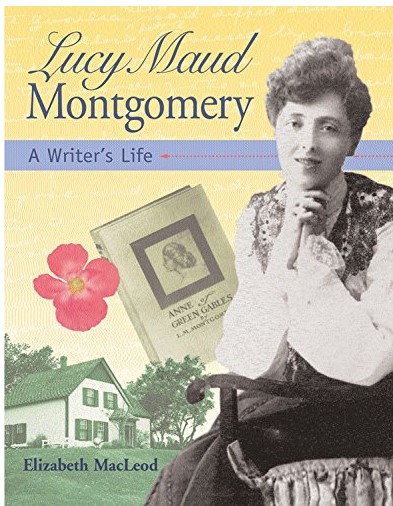
Lucy Maud Montgomery: A Writer’s Life
